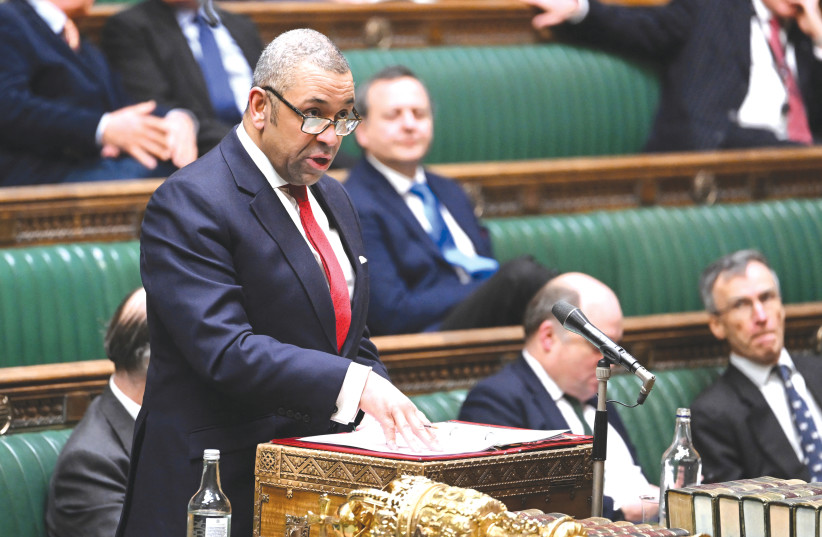Iran in January executed a British-Iranian national who once served as its deputy defense minister, its judiciary said, defying calls from London and Washington for his release after he was handed the death sentence on charges of spying for Britain.
Britain, which had declared the case against Alireza Akbari politically motivated, condemned the execution, with Prime Minister Rishi Sunak calling it "a callous and cowardly act carried out by a barbaric regime."
According to a May 1 report from the New York Times, Akbari provided Western powers with critical intelligence proving that Iran was pursuing nuclear weaponry. The Times' report posited, based on interviews with American, British, German, Israeli and Iranian intelligence and security officials, that Akbari's contribution to intelligence over the course of several years directly led to the sanctions imposed on Iran's nuclear program today.
Akbrai, per the Times, lived a "double life" for 15 years, from 2004 until 2019 when Iran discovered his activities with the help of Russian intelligence officials.
The assassination of Mohnsen Fakhrizadeh
Aside from handing over nuclear secrets, Akbari also disclosed the identity and activities of over 100 officials, most significantly Mohsen Fakhrizadeh, the chief nuclear scientist whom Israel reportedly assassinated in 2020.

Fakhrizadeh was widely seen by Western intelligence as the mastermind of clandestine Iranian efforts to develop nuclear weapons.
Documents revealed by Israel in 2018 showed that Fakhrizadeh led Project Amad, Iran's secret nuclear program which the country denied existed when it entered the JCPOA nuclear deal in 2015. Then prime minister Benjamin Netanyahu claimed that Fakhrizadeh continued work on nuclear weapons in the SPND, an organization inside Iran's Defense Ministry.
Akbari's illustrious spy career
According to the recent Times report, in 2004, amid growing suspicions in Israel and the West that Iran was secretly developing a nuclear weapons program, Akbari convinced key embassies in Tehran that it was not, while meeting regularly with the ambassadors of Britain, China, France, Germany and Russia.
He was recruited by Britain later in 2004 and Iran has claimed that MI6 paid Akbari nearly $2.4 million. He created front businesses in Austria, Spain and Britain to provide cover for meetings with his handlers, according to the Times. He officially retired from his position in 2008 but continued to serve as an adviser to Iranian Supreme National Security Council Secretary Ali Shamkhani as well as British Foreign Ministry officials. He was reportedly the source of the 2008 Fordo leak, when Western powers became aware of Iran's secret nuclear enrichment plant in Fordo, Iran.
“The discovery of Fordo radically altered the attitude of the international community toward Iran,” Norman Roule, the former national intelligence manager for Iran at the CIA told the Times. He added that it helped the West convince China and Russia that Iran had been dishonest about its nuclear capabilities and drove the push for more sanctions.
Over the years, Akbari traveled back and forth between London and Tehran, eventually obtaining British citizenship and bringing his wife and daughters to London with him.
He was arrested in 2019 after returning to Tehran and finding out from Samkhani that Iranian authorities had heard tell of his dealings with MI6. He was eventually imprisoned, during which time he was required to maintain a connection with his British contacts to deliberately mislead them, according to the Times' report. His arrest was kept secret for the duration of his imprisonment.
After three years of detainment, amid widespread anti-government protests, Iran announced that Akbari was a spy and executed him shortly thereafter.
“We could have never imagined this, and I don’t understand the politics behind it,” said Akbari’s wife, Maryam Samadi told the Times.
Reuters and Tzvi Joffre contributed to this report.
